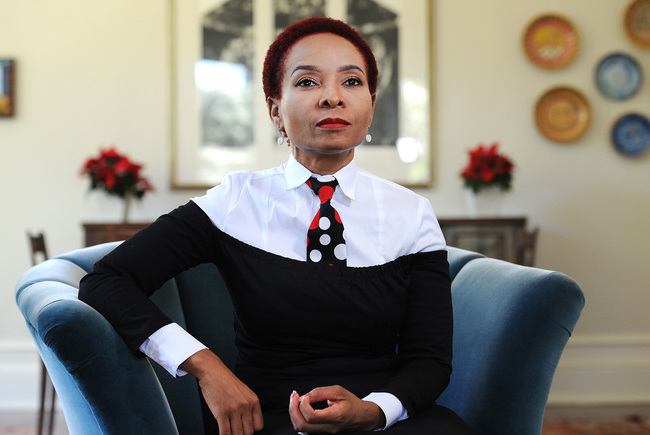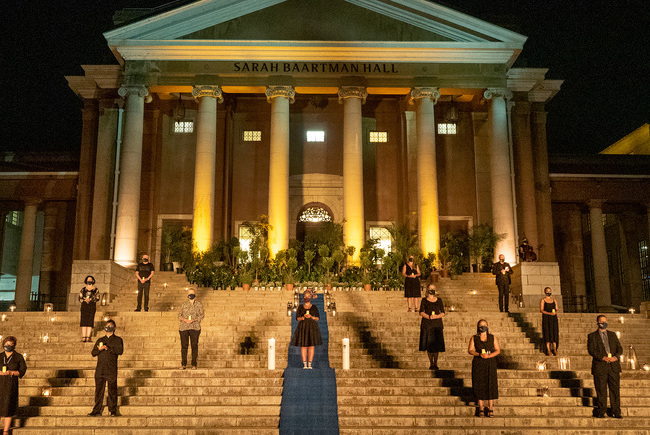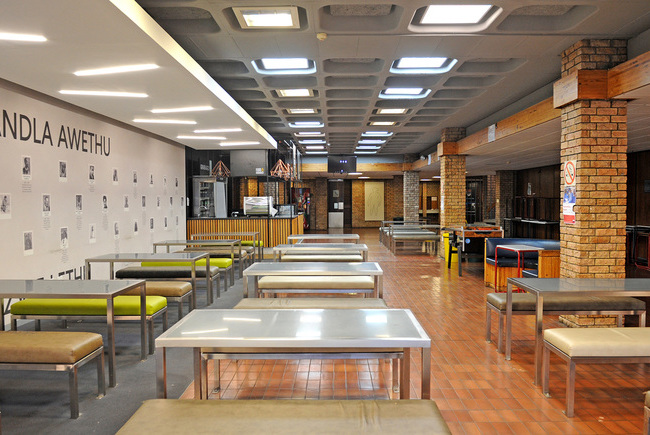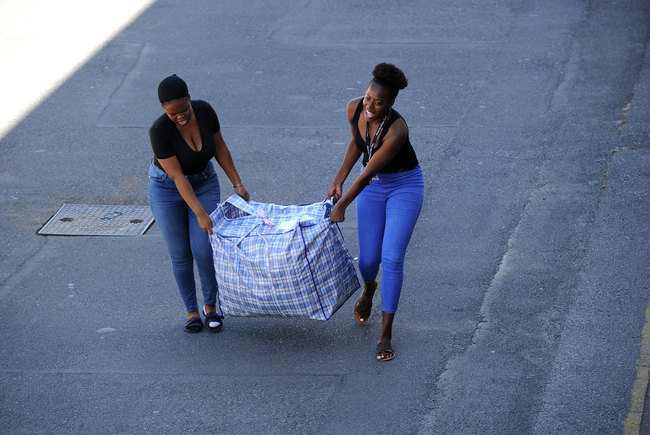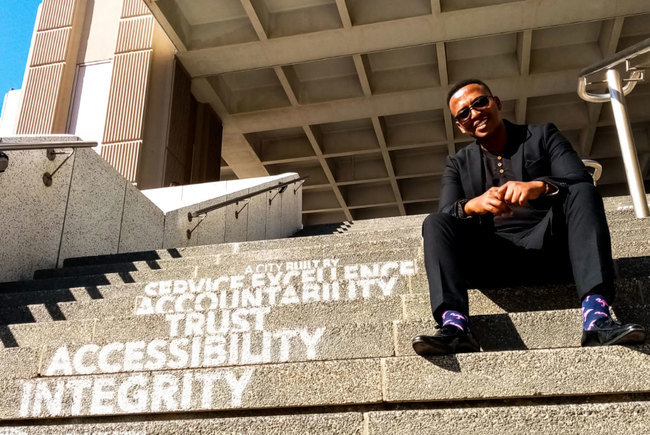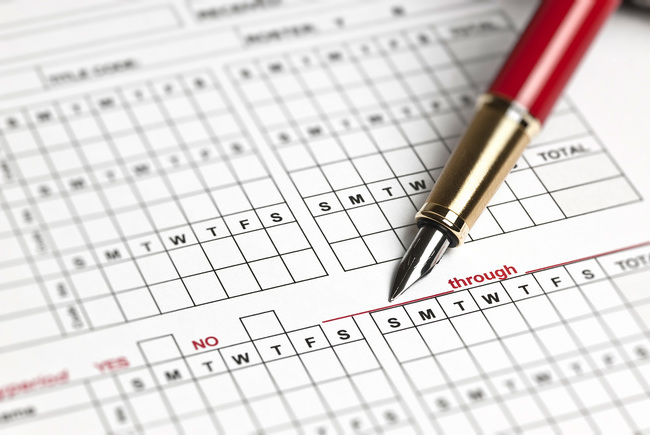Development Dialogue approach under COVID-19
18 June 2020 | Dr Reno Morar, COO
Dear colleagues
The COVID-19 pandemic has had far-reaching consequences for all staff members, and I want to thank each one of you for adjusting to this new environment, supporting one another under very difficult circumstances, and working so hard despite the restrictions imposed by lockdown. As always, the well-being of staff during this period remains our top priority, and I want to encourage you to access the various staff support services that are available, should you need to do so.
While in-person interaction between line managers and staff is unfortunately not possible during lockdown, ongoing contact with our colleagues remains vitally important to maintain positive morale and ensure motivation, support and recognition of staff efforts. As part of this engagement, the university has decided to continue with the staff performance reviews that are guided by the Development Dialogue (DD) process. Used for performance contracting, management and development of professional, administrative support and services (PASS) staff, the DD process is essential for effective staff feedback, engagement and building UCT as an employer of choice.
What follows is an outline of the agreed approach to conducting the DD process for the 2019/20 review (ending May 2020) and the 2020/21 contracting cycle (commencing June 2020).
Read the full document:
PASS DD Review and Contracting Process under COVID-19.
Approach and key principles
- Consistent and fair treatment of employees: It is important that all employees are treated in a consistent and fair manner when assessing their performance. In cases where staff have not been able to fulfil their contracted obligations, performance ratings must remain cognisant of the two-month lockdown period, which should not be held against a staff member unfairly when reviewing the full performance cycle.
- Consistent and fair implementation of process: Setting clear objectives and providing developmental feedback will mitigate the risk of potential claims of inconsistent application and/or no feedback. Consistency and fairness will include rating staff appropriately where they have performed above expectations, have met expectations, and have performed below expectations. Line managers must consider those circumstances which are beyond the employees’ control and apply a pragmatic approach to the DD review and contracting processes.
Implementing the DD cycle under COVID-19 conditions
Every effort must be made to engage with staff as part of the DD process, and deans and executive directors have been approached to ensure a consistent approach.
While some staff will be able to engage with the DD process remotely via MS Teams, Zoom, Skype, etc, some staff do not have access to these platforms. In these cases, staff must be engaged in telephonic DD conversations wherever possible, followed up with a text message (SMS/WhatsApp) to record a summary of the final discussion.
Despite this deliberate approach and concerted efforts, it may not be possible to engage on performance with some staff. In these cases only, the DD process may be deferred to when these staff members are able to return to work. This return date is still to be determined. Line managers must please be aware that prolonging the period of the performance review may lead to staff missing out on possible development opportunities and may have an impact on staff morale and levels of motivation. Deferring the DD process will also have a knock-on effect for contracting for the 2020/21 cycle, ending in May 2021.
To assist staff in understanding the DD process under COVID-19, we have drafted a set of frequently asked questions. Your human resources practitioner can also guide you through the process and will be distributing a comprehensive timeline to line managers in due course.
View the frequently asked questions about the DD process under COVID-19.
Contact your human resource practitioner.
The university community has seen very few COVID-19 infections, and we must each take joint responsibility for stopping the spread of the virus and helping to keep our colleagues and our students safe. As we slowly start to implement our plan for a phased return to campus, it is now more important than ever to continue with good health and hygiene practices.
For more information on COVID-19, please visit the UCT Coronavirus Disease 2019 page.
Sincerely
Dr Reno Morar
Chief Operating Officer
Read previous communications:
 This work is licensed under a Creative Commons Attribution-NoDerivatives 4.0 International License.
This work is licensed under a Creative Commons Attribution-NoDerivatives 4.0 International License.
Please view the republishing articles page for more information.
UCT’s response to COVID-19 in 2021
COVID-19 is a global pandemic that caused President Cyril Ramaphosa to declare a national disaster in South Africa on 15 March 2020 and to implement a national lockdown from 26 March 2020.
UCT is taking the threat of infection in our university community extremely seriously, and this page will be updated regularly with the latest COVID-19 information. Please note that the information on this page is subject to change depending on current lockdown regulations.
Commemorating a year of COVID-19
At midnight on 26 March 2020, South African went into the first nationwide hard lockdown. A year later, we remember those who have died and those who have been affected by COVID-19, as well as the pandemic’s effects across society and campus. We are especially grateful for the front-line health workers who have done so much for so many.
Frequently asked questions
In an email to the UCT community, Vice-Chancellor Professor Mamokgethi Phakeng said:
“COVID-19, caused by the virus SARS-CoV-2, is a rapidly changing epidemic. [...] Information [...] will be updated as and when new information becomes available.”
We are continuing to monitor the situation and we will be updating the UCT community regularly – as and when there are further updates. If you are concerned or need more information, students can contact the Student Wellness Service on 021 650 5620 or 021 650 1271 (after hours), while staff can contact 021 650 5685.





